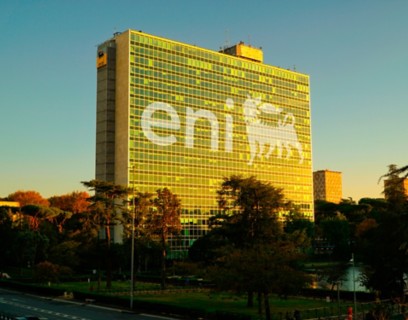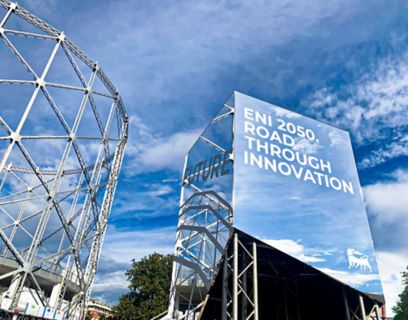- BUSINESS MEETINGS AND AGREEMENTS
MyEni Login
The agreement sets out the cornerstones of the collaboration: to safeguard natural resources by using them efficiently and sustainably; to promote the recovery, reuse, and extension of products’ useful life; to produce sustainable energy products, such as biofuels and bio-chemicals, and to promote biomass or waste products.
Sannazzaro de 'Burgondi (PV), 1 July 2019 – Attilio Fontana, President of the Lombardy Region, and Giuseppe Ricci, Eni’s Chief Refining & Marketing Officer, signed a Memorandum of Understanding at Eni’s refinery in Sannazzaro de' Burgondi today. With a low-carbon future in mind, they will implement a joint, circular development process, leading to the study and definition of new industrial models for long-term sustainable growth.
The agreement sets out the cornerstones of the collaboration: to safeguard natural resources by using them efficiently and sustainably; to promote the recovery, reuse, and extension of products’ useful life; to produce sustainable energy products, such as biofuels and bio-chemicals, and to promote biomass or waste products.
The initiatives will include studies to enhance and optimise urban waste management through digital mapping and traceability systems. These efforts will focus largely on organic waste, with Eni currently working on a pilot plant for bio-oil production in Gela using its Waste to Fuel technology. Other initiatives include recovering biological mud and plastic waste through recycling technologies or conversion in chemical and/or energy intermediates, and leveraging waste biomass from production chains in Lombardy, particularly from rice, dairy, and meat industries, to collect animal fats.
The Region of Lombardy and Eni will study virtuous models for collecting and recovering used domestic oils for biofuel production, and for the recovery and reuse of industrial or domestic water for production purposes. There is opportunity for renewable energy production initiatives to be rolled out in industrial areas that are being redeveloped or have already been upgraded. With regards to mobility, the two bodies also aim to identify solutions to reduce emissions and improve the user-efficiency of private cars, public transport and car sharing.
The Region of Lombardy and Eni regard themselves as "agents of change", using their respective technological knowledge and skillset to accomplish their jointly-identified initiatives: the Region will provide governance, planning and community liaison, while Eni will offer its expertise, together with that of its group companies and, where possible, their partners.
Eni previously initiated a clear path towards decarbonization, and this year, it has renewed its commitment with a new and more challenging goal: to reach zero net upstream emissions by 2030. Eni expects to reach this target primarily through key efficiency measures to minimise direct upstream CO2 emissions. By 2025, the company commits to reduce the emissions intensity of upstream activities by about 45%, eliminate flaring processes, and reduce methane emissions by 80%. Eni's decarbonization strategy also relies on the growth of low-carbon sources, by increasing gas and biofuel quotas in the company's portfolio, an increase in zero-emission sources, such as solar, wind and hybrid systems, and last but not least, a circular approach that maximises the use of waste as feedstock, and that transforms and extends assets’ useful life.
Over the next four years, Eni will invest over € 950 million, plus another € 220 million in research and development, to develop circular industrial solutions. In this context, the company has already achieved important records and results. For example, as well as being the first company in the world to have converted a traditional refinery into a biorefinery in Venice (and soon in Gela), Eni is engaged in recovering used and frying vegetable oils to produce green diesel for sustainable mobility, and is developing technological solutions that allow microbial oil to be generated from lignocellulosic biomass waste, such as wheat or corn straw.
With integration along the entire circular economy chain in mind, Eni has developed and patented their Waste to Fuel technology, which uses the organic fraction of urban waste to produce energy, transforming it into a bio-oil through a liquefaction process. This bio-oil can be used directly as fuel in marine transport. The virtuous circle, which began with a pilot plant in Gela, will be expanded through the construction of industrial plants at other Eni sites in Italy, including Porto Marghera. Eni has also launched several projects in the chemical sector, including solutions for feedstock diversification, polymer recycling, and eco-design initiatives to maximise product recycling and optimise raw material consumption.
Investor Relations
Freephone for shareholders (from Italy): 800940924
Freephone for shareholders (from abroad): + 80011223456
Eni.com is a digitally designed platform that offers an immediate overview of Eni's activities. It addresses everyone, recounting in a transparent and accessible way the values, commitment and perspectives of a global technology company for the energy transition.
Discover our mission


















